How can mountains of discarded oil drums and car bodies be transformed into high-density, more valuable recycled materials? This is precisely the business upgrade our Tunisian client achieved by introducing our twin-shaft industrial shredder.
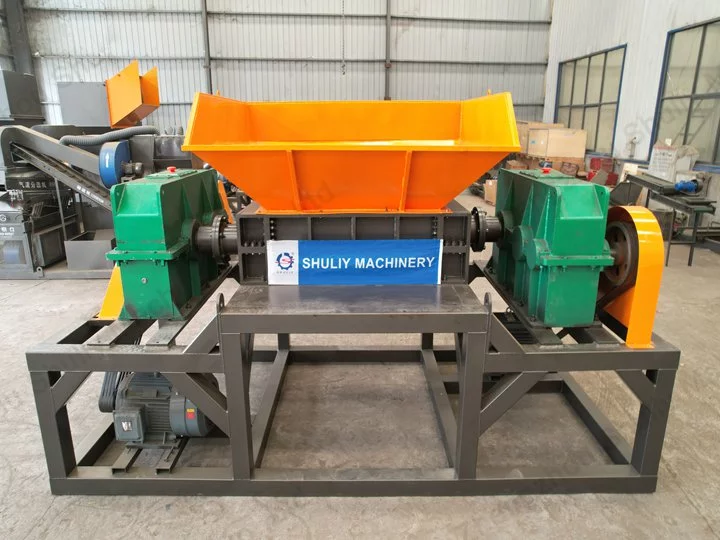
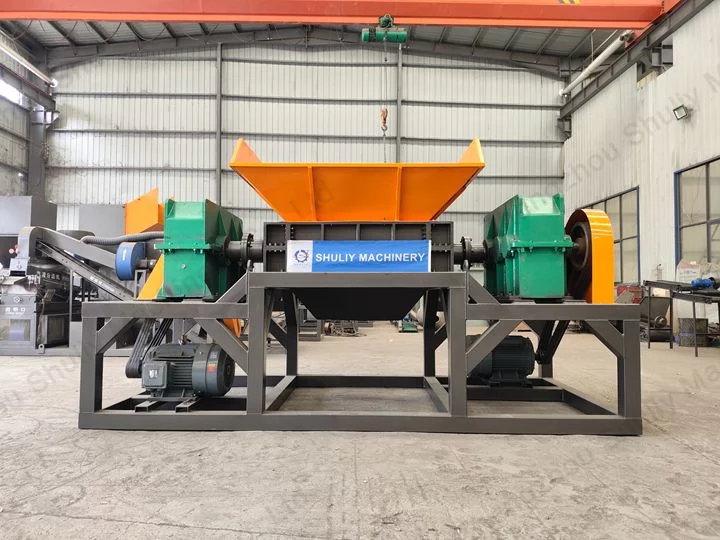
Client background and core requirements
Our client operates a scrap metal recycling and processing plant in Tunisia. Their operations encompass the recovery of various lightweight scrap materials, including discarded appliances, oil drums, automotive bodies, and color-coated steel roofing sheets.
Before adopting our equipment, they primarily relied on manual dismantling and balers for preliminary processing. This approach proved inefficient, posed significant safety risks, and resulted in persistently high storage and transportation costs.
Therefore, the client’s core objective is to find an automated solution capable of efficiently shredding these bulky, mixed scrap materials into small-sized, high-density fragments.
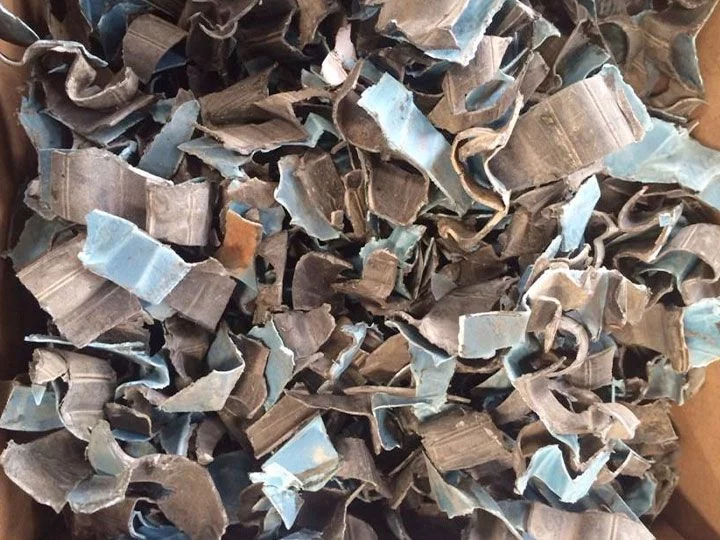
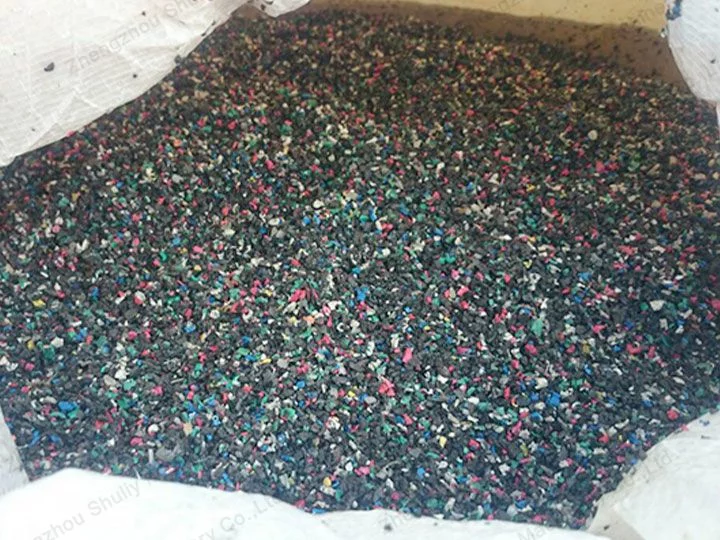
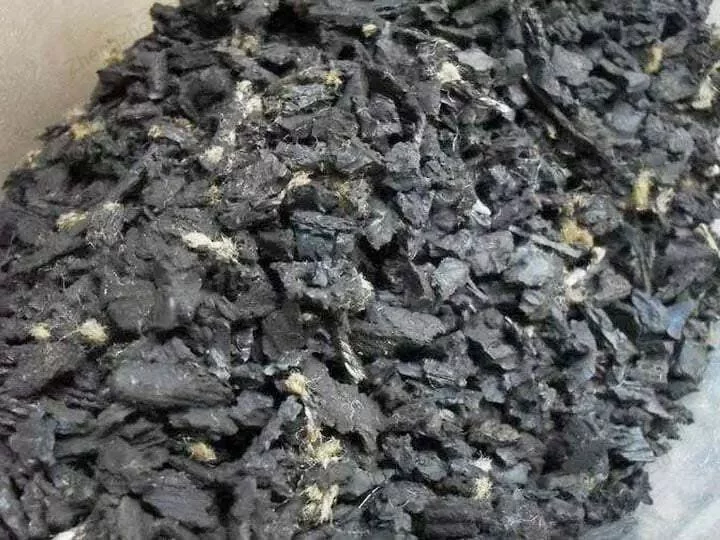
Shuliy solutions
During the project’s preliminary phase, we analyzed the composition of the primary waste materials based on photos and videos provided by the client. Considering their requirements for output volume and discharge size, we recommended a twin-shaft industrial shredder equipped with thickened blades for enhanced durability.
Additionally, we designed matching feed and discharge conveyors for this shredder, establishing a fully automated production line from material loading to final discharge.
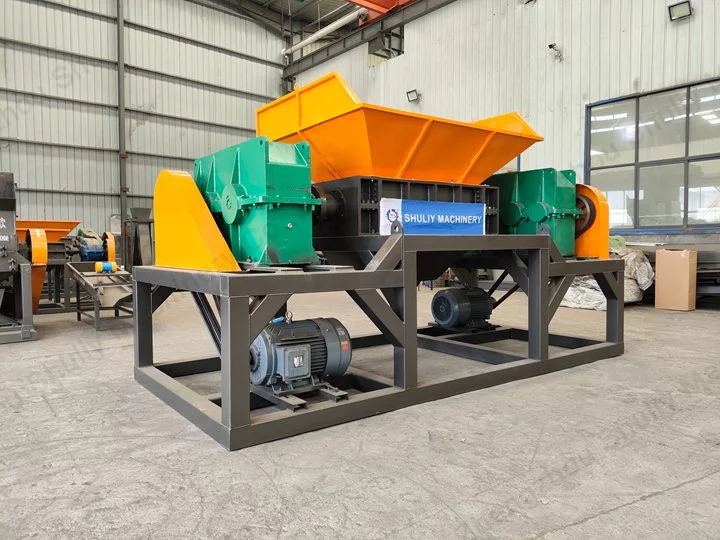
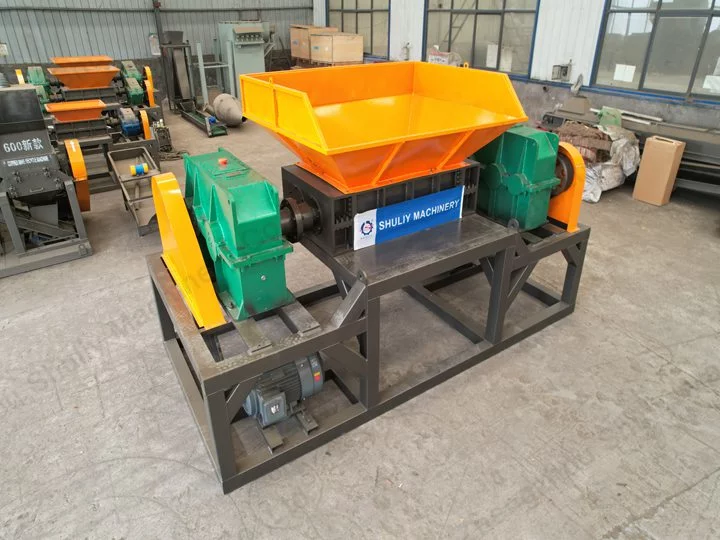
Core advantages of our industrial shredders
Addressing clients’ needs for processing complex, hard scrap metal, we highlighted the key technical features of our dual-shaft shredders:
High-torque, low-speed shearing principle: the industrial shredder employs two counter-rotating cutting shafts that shred, shear, and compress materials through claw action. This low-speed, high-torque design enables it to process hard metals with immense force.
It also effectively reduces dust and noise generation while minimizing machine jams caused by material entanglement.
High-hardness alloy blades: the shredder’s core component—the blades—are forged from high-strength, wear-resistant alloy steel and undergo multiple heat treatments. They possess exceptional hardness and toughness, capable of withstanding prolonged shearing of high-strength materials like scrap automotive bodies.
Blade thickness and claw count can be customized based on material properties and output size requirements.
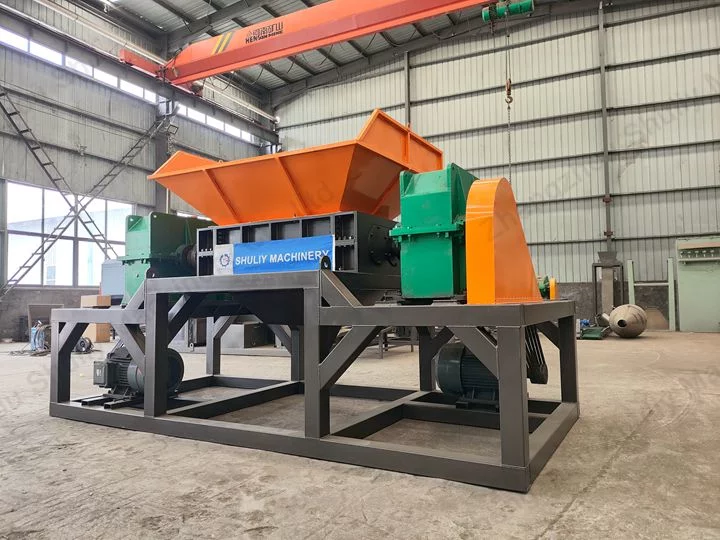
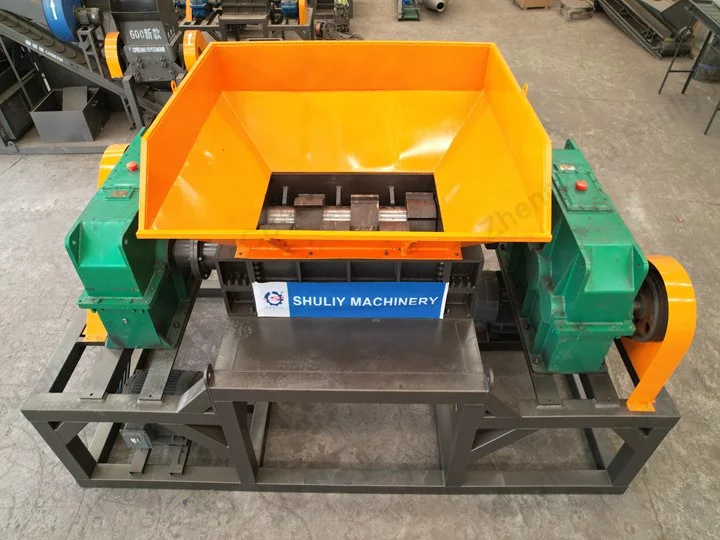
Why choose Shuliy?
We understand that cross-border procurement represents a significant investment for our clients. That’s why we eliminate concerns through unparalleled transparency and reliability.
Complete test run videos: we conduct thorough testing of the entire feeding, shredding, and discharge process using materials such as scrap oil drums and sheet metal. High-definition videos documenting the entire operation are sent to clients, allowing them to visually verify the equipment’s powerful shredding capability and uniform discharge results.
Demonstrate meticulous, secure packaging: we employ multi-layered protective packaging. First, the machine is tightly wrapped in moisture-proof and dust-proof stretch film. Next, steel strapping securely fastens the equipment to its base. Finally, it is loaded into a sturdy wooden crate, with photos provided for client confirmation.
Supporting real-time video inspection: before packing, we proactively invite clients to join a video call, allowing them to inspect every detail of the machine in real-time and from all angles. This includes verifying blade material and thickness, as well as the brands of the gear reducer and motor.
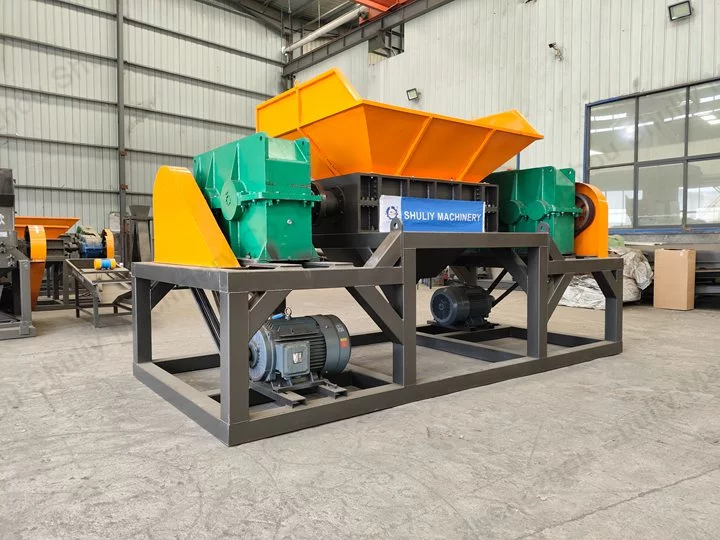
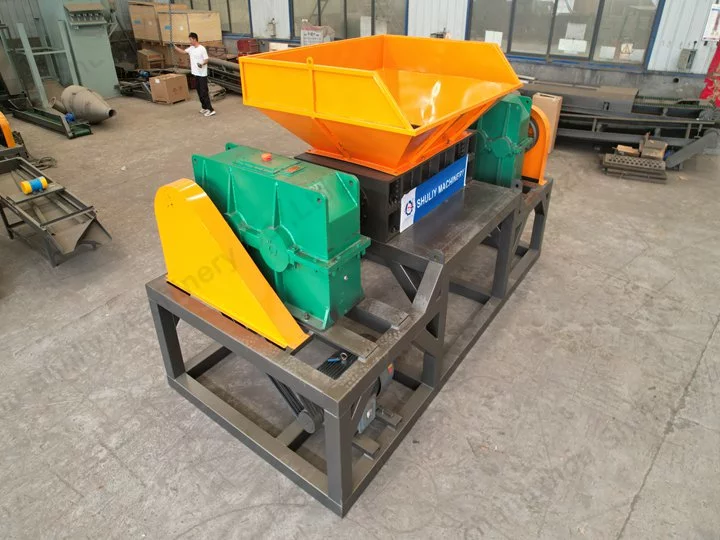
Positive customer feedback
Upon arrival at Port Lades, the customer highly commended our exceptionally robust packaging, which ensured the heavy equipment arrived undamaged after the long-distance transport. During the installation phase, our technical engineers guided the customer’s technical team through detailed electrical schematics and remote video calls, enabling them to complete the equipment installation and commissioning.
Currently, the client’s scrap processing efficiency has increased severalfold, with the density of shredded metal scrap significantly enhanced. This has not only reduced transportation costs by over 50% but also led to a notable increase in sales prices.
